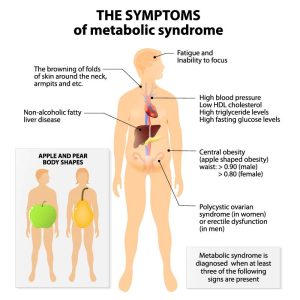 Prediabetes- Are you at risk?
Prediabetes- Are you at risk?
Don’t think that being fit and skinny gives you an automatic pass out of this group. Just because you live a healthy lifestyle doesn’t mean you’re not at risk for pre-diabetes,
1 in 3 American adults has prediabetes. Do you?
Think you’re too fit or healthy to get diabetes? Truth is, you may actually be at risk. However, pre-diabetes, even diabetes for that matter, is largely silent. “There usually aren’t any symptoms, which is why so many people remain undiagnosed.”
What is Prediabetes?
A disease in which blood glucose (sugar) levels are above normal. With pre-diabetes, however, blood sugar is higher than normal but not high enough to be diagnosed as diabetes.
How does it work?
Glucose comes from the foods you eat. Too much glucose in your blood can damage your body over time. If you have prediabetes, you are more likely to develop type 2 diabetes, heart disease, and stroke.
Some risk factors are :
- are habitually physically inactive
- have previously been identified as having IFG (impaired fasting glucose) or IGT (impaired glucose tolerance)
- have a family history of diabetes
- are members of certain ethnic groups (including Asian American, African-American, Hispanic American, and Native American)
- have had gestational diabetes or have given birth to a child weighing more than 9 pounds
- have elevated blood pressure
- have an HDL cholesterol level (the “good” cholesterol) of 35 mg/dl or lower and/or triglyceride level of 250 mg/dl or higher
- have polycystic ovary syndrome
- have a history of vascular disease
Pre-diabetes Risk Biomarkers:
The Pre-Diabetes Biomarkers identify metabolic abnormalities that may progress into diabetes. Pre-diabetes is a condition where the body cannot efficiently metabolize foods, especially carbohydrates, resulting in impaired glycemic (blood sugar) control which may progress to diabetes when not properly treated or addressed through lifestyle changes.
- Glucose – a snapshot of blood sugar at the time of blood draw
- Insulin – correlates to the efficiency with which a person can metabolize carbohydrates; high fasting levels indicate insulin resistance and possible pre-diabetes
- Hemoglobin A1C – long term (2-3 months) marker of glycemic control; also considered a marker of accelerated aging
- C-peptide – a measure of endogenous insulin production; useful in distinguishing between type 1 and type 2 diabetes
- Adiponectin – a hormone that enzymatically controls metabolism; high levels beneficial and indicate efficient cellular energy production
- Leptin – called the “satiety” hormone because it regulates the appetite centers in the brain to decrease hunger; chronically high levels linked to obesity and can indicate leptin resistance (dysfunctional appetite regulation)
- Metabolic syndrome traits – A diagnosis of metabolic syndrome is confirmed if any three of the following six traits exist in a patient: (1) high triglycerides (2) high glucose (3) low HDL (4) high blood pressure (5) high waist circumference or (6) increased small dense LDL
Vascular Inflammation Markers:
- ApoB 100
- Lp(a)
- C-Reactive Protein-hs
- Homocysteine
Get Tested! Stay Healthy!
 Prediabetes- Are you at risk?
Prediabetes- Are you at risk?